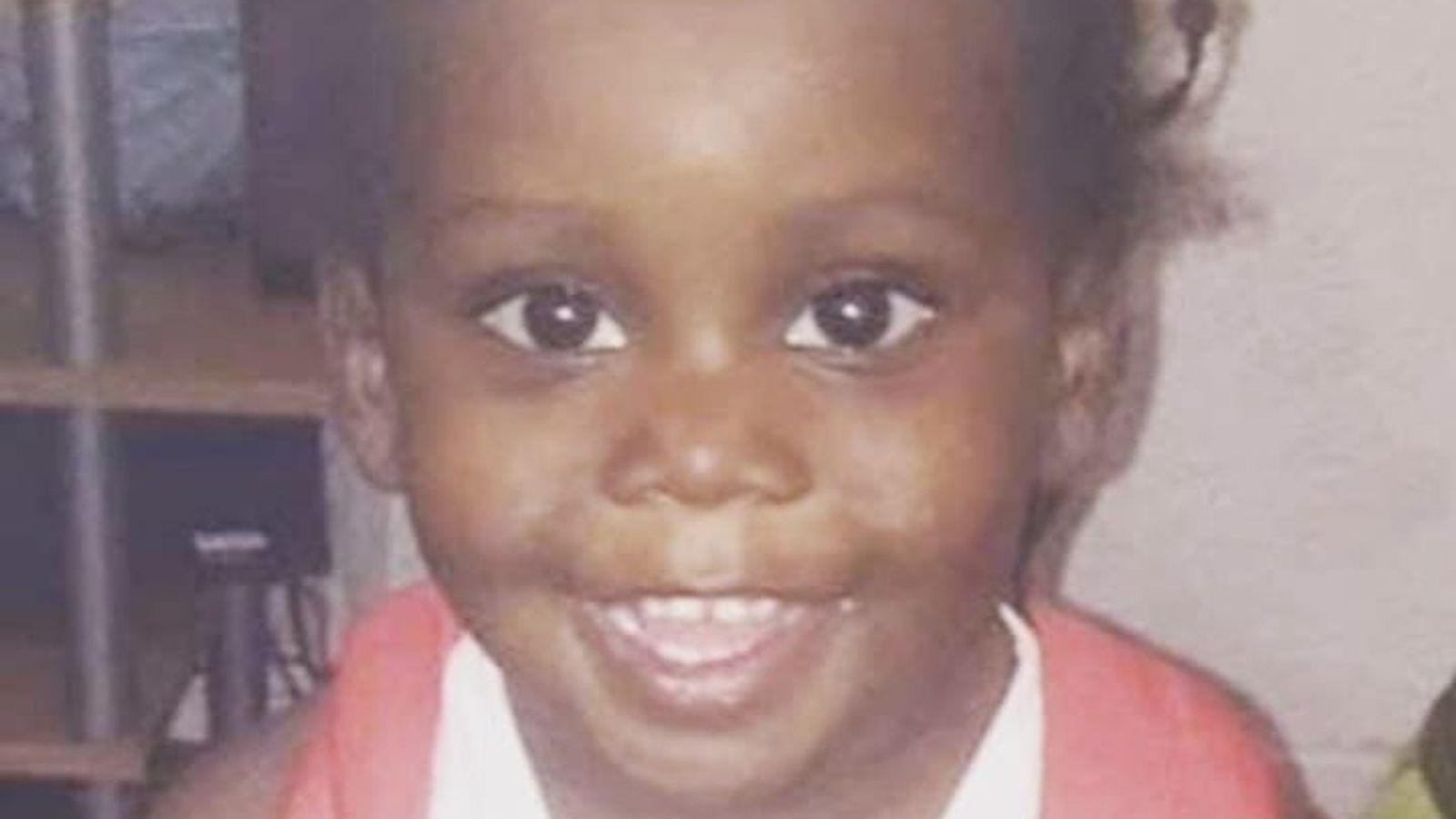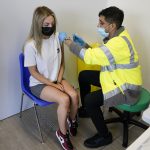A man has been found guilty of murder and his partner guilty of causing or allowing the death of her three-year-old son.
Kemarni Watson Darby was found lifeless by paramedics at his home in West Bromwich on 5 June 2018.
He was taken to hospital, but pronounced dead that evening.
Nathaniel Pope, 32, is also found guilty of three other child cruelty charges. 30-year-old Alicia Watson, Kemarni’s mother, is also found guilty of three other child cruelty charges.
Both will be sentenced at a later date.
Injuries ‘required force akin to a road traffic accident’
The jury was told he had suffered multiple fractures, “some of which would have required force akin to a road traffic accident” or stamping on his body with a “shod foot”.
Boris Johnson and Rishi Sunak to be fined over lockdown-breaking parties in Downing Street
Partygate fines – latest updates: Boris Johnson and Rishi Sunak to receive fixed penalty notices over Downing Street parties
Tributes to ex-England schoolboy footballer Sam Harding, 20, who died in crash in Warrington
Recent and non-recent injuries were found, including multiple fractures to both the left and right side of his rib cage, caused by at least four separate events.
He had also suffered extensive internal bruising and lacerations to his liver and colon.
Kemarni died of abdominal trauma, which the court heard “was most likely caused by a blow”.
There were additional bruises on his head, mouth, neck, arms, chest, abdomen, back and legs from “repeated and, in all probability, sustained assaults”.
Kemarni’s father Darren Darby told the trial he was aware that his son was being slapped, punched and kicked by his “strict” mother.
He also said he had warned Watson about Pope and asked her to be cautious of him.
‘Everybody knew she was beating Kemarni – we let him down’
Just over two weeks before Kemarni’s death, his father had noticed a lump on the right side of his forehead which was sticking out and a bruise to his lip.
Watson, of Handsworth, Birmingham, told him that Kemarni had walked into something or been clumsy.
Other family members raised concerns about bruises, but were given similar explanations.
Kemarni’s maternal grandmother, Paulette Ellis, told Sky News she was unaware of most of Kemarni’s injuries and saw “no bruises at all except of the ones that he had on his forehead”.
Asked if she questioned them, she said: “We always ask because you know what children are like but Kemarni was a little boy, he would just run and not look where he was going, he would bump into the door, bump into the table”.
She says no one from the family contacted social services.
Giving evidence at the trial, Mr Darby said Watson “could not handle Kemarni”.
“Everybody did know that she was beating Kemarni. We all let him down,” he said.
The trial heard that Kemarni had expressed a wish not to go home to his mother’s flat after visits with his father.
Doctor noted Kemarni ‘not his usual self’ hours before his death
Sam Evans, the manager of Kemarni’s nursery, had also spoken to his mother after noticing injuries, including split lips, on two occasions.
On the day of his death, Kemarni had been taken by his mother to a GP walk-in centre on Parsonage Street just before midday.
His notes recorded that he had been vomiting for five days and was “not his usual self”.
The note also said that there was no “abdominal pain”, and Kemarni was prescribed rehydration medication for what was thought to be a viral stomach bug.
He was then taken by his mother to McDonald’s and then returned home.
Medical experts who have reviewed CCTV believe by that stage he had not received the injury that killed him, as the fatal blow would have left him unable to walk properly.
That afternoon, Pope and Watson were both in the flat with Kemarni. Watson left for around 40 minutes to do the school run, but then returned. Paramedics were called at 3.49pm.
Pope, of Wolverhampton, told the trial he had heard Watson slapping Kemarni while he was living in the flat, saying: “I just saw it as her way of parenting.”
Both Pope and Watson admitted using cannabis at the flat.
‘He was always smiling, always happy’
While giving evidence in her defence, Alicia Watson blamed Pope for Kemarni’s death, saying: “I hate him. He’s a cold-blooded liar.”
She described Kemarni as her “beautiful boy”.
“He was always smiling. Always happy. Cheeky and mischievous,” she added.
She claimed that when he fell ill on the day he died, she “genuinely thought he was just sick” and was “confused at what had happened”.
Her mother, Ms Ellis, said the death of her grandson has had a terrible impact.
She said: “We all miss him, and it’s taken a toll on the rest of the family. I can’t sleep at night. In my bedroom, I have a little shrine… I have a lot of photos of him, so I talk to him.
“He was a bubbly, friendly little one.”
She recalled the day he died, saying: “My daughter called me and told me that Kemarni wasn’t breathing, and they were going to the hospital. By the time I went to the hospital, they wouldn’t allow us to see him. I heard everybody crying.”
She attended the trial to support her daughter, and blames Pope for Kemarni’s death.
“Everything was fine before he came along,” she said.
“He’s evil and twisted and cold. He’s cold-hearted, and he’s trying to deny everything, but he is the one who did it.”
A spokesperson for Malling Health said: “We were very saddened to learn of the death of Kemarni Watson Darby. We offer our deepest condolences to the loved ones of Kemarni during this challenging time.
“We can confirm that Kemarni attended the Parsonage St walk-in centre with his mother and this service was run by Malling Health at that time, in partnership with the NHS. The service was rated Good by the Care Quality Commission and we are committed to delivering a high standard of patient care.
“During his visit to the centre, Kemarni was seen by a very experienced Advanced Nurse Practitioner, who had worked at the service for several years. The Advanced Nurse Practitioner is a locum and is therefore independent. Kemarni received a physical examination and comprehensive notes were recorded at the time.
“A serious case review has been undertaken which we expect to be published shortly after the trial verdict. We are committed to the highest possible standards of patient safety and once the serious case review is published, as a learning organisation, we will review the content, consider the findings, and make any necessary changes to our services.”






















